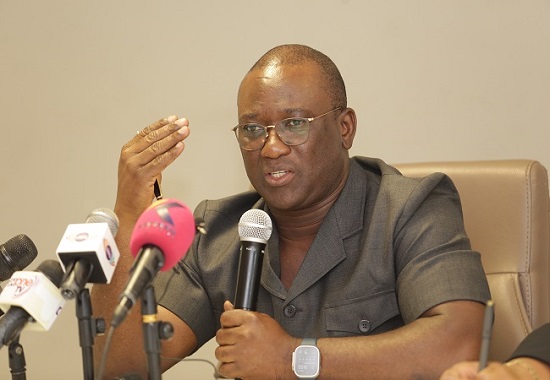The Ministry of Transport (MOT) has held a consultative meeting with the media to solicit inputs into the draft Electronic-Vehicle Policy to guide the deployment and upscale of electronic vehicles in the country.
The forum, held in Accra on Wednesday, forms part of the Ministry’s aim of fostering collaboration and generating inputs from the country’s transport ecosystem to help in the implementation of the policy.
In his address, the Deputy Minister for Transport, Mr Hassan Sulemana Tampuli, underscored the policy’s pivotal role in promoting the adoption of electric vehicles in the country.
He stated that Ghana is embracing electric mobility solutions to help combat the growing threat of climate change and its adverse impacts on the environment.
“The deployment and upscale of electronic vehicles in Ghana are vital components of our sustainable development agenda and through this policy, we seek to leverage the potential of electric vehicles to usher in a new era of clean, efficient and eco-friendly transportation,” he added.
Mr Tampuli said the national energy transition framework as part of its decarbonization of activities, seeks to promote and ensure the use of electric vehicles as an alternative, cleaner and efficient means of transport.
“The use of electric vehicles in the country will promote renewable energy and also contribute to reducing pollution. As is already apparent, pollution in cities is killing people, affecting the physical and mental development of children and raising a case for the urgent need to change to EVs, walking, cycling and electric mass transit,” he stated.
The Deputy Minister said the engagement with the media was to foster a shared sense of responsibility in achieving the country’s climate goals and ensuring that the policy is well-received and embraced by the entire nation.
In a presentation, a consultant of the Electronic Vehicle Policy at the Ministry of Transport, Dr Daniel Essel, disclosed that Electronic-Vehicle Policy outlines a comprehensive roadmap to encourage the adoption of electric vehicles at both individual and fleet levels.
He stated that the policy aims to establish an extensive network of electric vehicle charging infrastructure across the country.
“This move is set to address concerns about range anxiety, making EVs a more viable and attractive option for consumers,” he added.
The formulation of a National Electric Vehicle policy was announced by the government in 2022 to guide the deployment and scale-up of electric vehicles in the country. The policy will define the operational guidelines as Ghana prepares to introduce the first-ever powered electric buses and gas-powered buses for public transportation.





